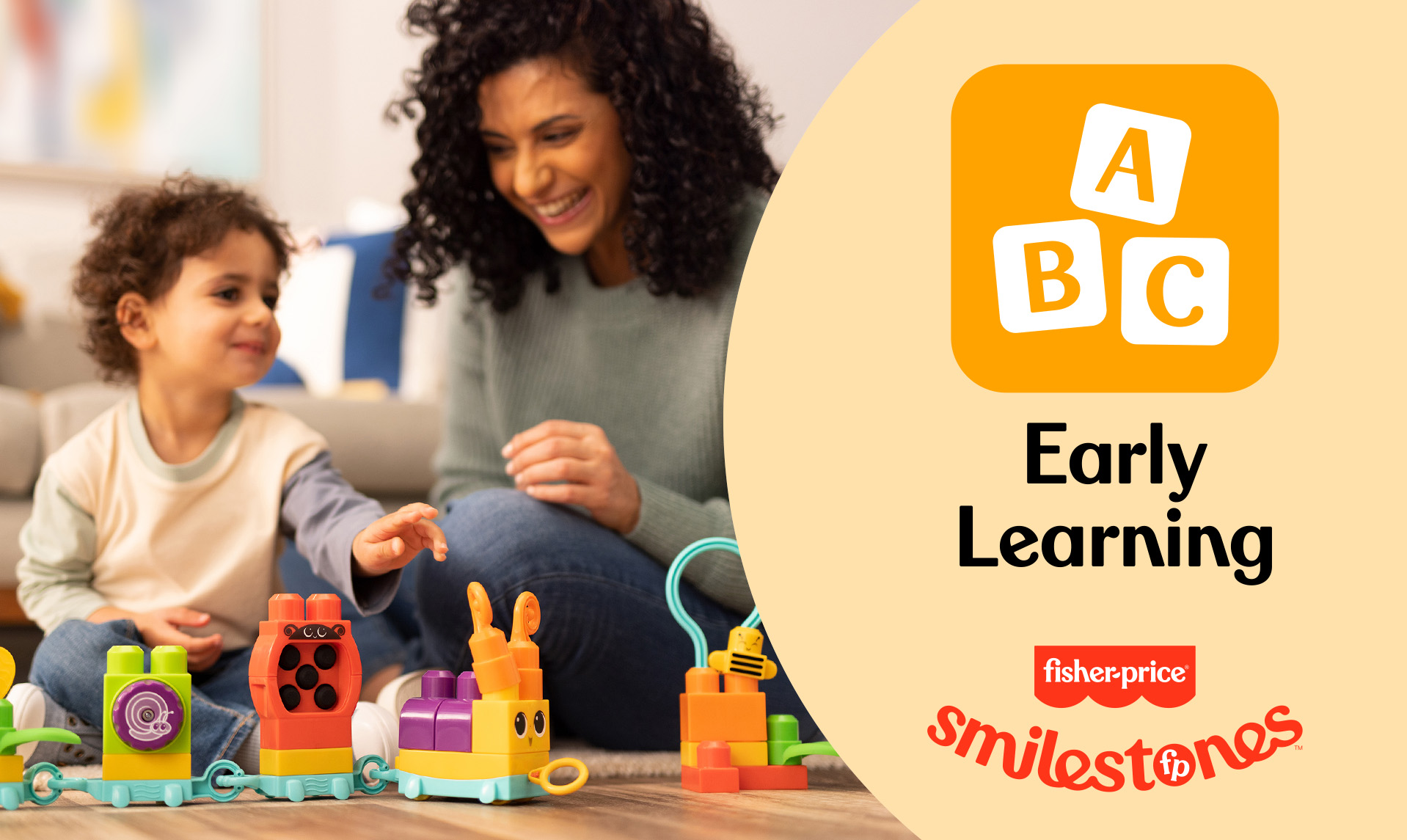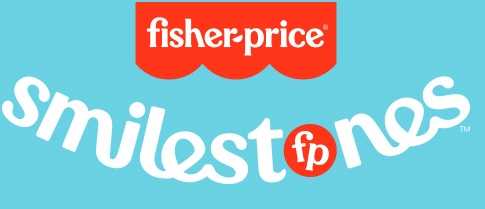- {"key":"Home","value":"\/"} Home
- {"key":"Mattel Playroom","value":"\/en-gb\/blogs\/playroom"} Mattel Playroom
- {"key":"Tips for Parents","value":"\/en-gb\/blogs\/playroom\/tagged\/en-gb-category-tips-for-parents"} Tips for Parents
How to Introduce Numbers & Letters to Your Toddler
June 23, 2023

Early learning, math & literacy skills, preschool prep – these are probably just a few of the phrases that you’ve heard thrown around now that you’re officially in the toddler years. And you likely have some questions. Luckily, I have some answers.
Hi, I’m Nicole and I’m a Child Testing Researcher and mom of two. My professional (and personal) experience has taught me that most parents aren’t sure where – or when – to start when it comes to early academics.
I’m hoping this article can provide you with a bit of a lesson plan. I’ve included timelines, tips & tools to help you feel a bit more prepared for these pre-preschool years.

Why are early math & literacy skills so important?
The toddler years are big for your little one’s language development. Not only are they starting to understand more of what you say, they’re finding their own voice. So, naturally, that leads to lots of questions about everything around them. And letters & numbers are everywhere. The more they recognize ABCs & 123s and understand how they’re used, the more they can start to figure things out on their own. And, when they eventually head off to school, they’ll have a good foundation to build on.


Early learning tips
As adults, we often think of learning as just lessons that happen inside a classroom. But, for your toddler, the world (and your home) is the classroom. And there are so many simple ways you can play the role of teacher.
Number recognition & counting tips


1. When reading stories with your kiddo point out the numbers on the pages. See if they can identify the page you’re on by the numbers.


2. Look for signs with numbers on them when you’re in the park, at the mall, or grocery shopping and see if your big kid can identify the numbers. I bet they can!


3. Counting can happen anywhere, at any time. At mealtime, count crackers. At playtime, count toys. At bath time, count fingers & toes.


4. Involve your child in cooking by having them help pour, fill, and mix. This is a fun way to introduce concepts like counting, measuring, and adding.


1. When reading stories with your kiddo point out the numbers on the pages. See if they can identify the page you’re on by the numbers.


2. Look for signs with numbers on them when you’re in the park, at the mall, or grocery shopping and see if your big kid can identify the numbers. I bet they can!


3. Counting can happen anywhere, at any time. At mealtime, count crackers. At playtime, count toys. At bath time, count fingers & toes.


4. Involve your child in cooking by having them help pour, fill, and mix. This is a fun way to introduce concepts like counting, measuring, and adding.
Reading & literacy tips


1. Read picture books and ask them to point out familiar objects. Even if they're still too young to identify things, you can pause and then provide the answer yourself: Where's the duck? (pause). There's the duck! At some point, they will be able to point to the pictures on their own.


2. You can also use the pictures in children’s books to introduce more descriptive words. Ask your little one to find the blue bird or red house. Even if your toddler can’t identify many objects at first, practice will make perfect.


3. Sing it! Incorporating music is a fun & easy way to keep kids tuned in to what they’re learning. That’s why toys with sing-along songs are such a hit!


4. Play games that involve rhyming. Rhyming helps familiarize children with beginning, middle and ending sounds.


1. Read picture books and ask them to point out familiar objects. Even if they're still too young to identify things, you can pause and then provide the answer yourself: Where's the duck? (pause). There's the duck! At some point, they will be able to point to the pictures on their own.


2. You can also use the pictures in children’s books to introduce more descriptive words. Ask your little one to find the blue bird or red house. Even if your toddler can’t identify many objects at first, practice will make perfect.


3. Sing it! Incorporating music is a fun & easy way to keep kids tuned in to what they’re learning. That’s why toys with sing-along songs are such a hit!


4. Play games that involve rhyming. Rhyming helps familiarize children with beginning, middle and ending sounds.




Skill development timelines
One of the most important lessons I’ve learned as a child development expert (and mom) is that children learn at different paces and in different ways. The below is just meant to give you some general timelines for when you might see certain skills show up – and remind you that early math & literacy skills start way before 123s & ABCs.
MATHEMATICS

18 to 26 months Stops filling bucket with sand when it's full

19 to 21 months Completes a puzzle of three separate cut-out pieces, such as a circle, square, and triangle

20 to 30 months Recognizes basic geometric shapes (circle and oval first, then square and rectangles)

23 to 25 months Assembles a two-piece puzzle; for example, a picture of a flow¬er cut into two pieces

24 to 30 months Understands concept of one

28 to 36 months Counts out loud to 3

30 to 36 months Stacks rings in correct order

30 to 36 months Points to larger or smaller of two spoons

LITERACY

12 to 18 months Recognizes favorite & familiar stories when shown book covers (and responds with positive emotions in the form of smiles or laughter)

14 to 15 months Helps turn pages

18 to 24 months Can identify familiar characters in stories through pointing when prompted by an adult

30 to 36 months Enjoys being read to and looks at books independently

36 to 48 months Shows an awareness of alphabet letters such as singing the ABC song, recognizing letters from their own name or other frequently seen letters

36 to 60 months Prints own first or last name (from copying examples)







Parent check-in
How are you feeling? Hopefully, a bit more knowledgeable (and a bit less stressed)?
Just know that you’re not expected to sit your toddler down at a desk every day and quiz them on their numbers & letters. Because, at this age, that’s not how they learn. They learn by experiencing things, doing activities, and watching you.
So, keep doing what you’re doing. Because you’ll always be their greatest teacher.
Gentle reminder: If you ever have concerns about your child’s development, trust your gut and reach out to your pediatrician.”

Bringing a smile to milestones.
Say hello to happier parenting. We’re here to help you celebrate the little victories, let go of expectations, and pick up more positivity. Because after more than 90 years of helping families, we’ve learned that development happens naturally when fun leads the way.
Learn MoreRelated Articles

Pretend Play: How To Spark Your Toddler’s Imagination
As your little one grows, their imagination is where they start to make sense...

Big Moves for Your Toddler: Physical Skills Beyond Walking
Gross motor skills (AKA physical skills) involve movements using large muscle...


































